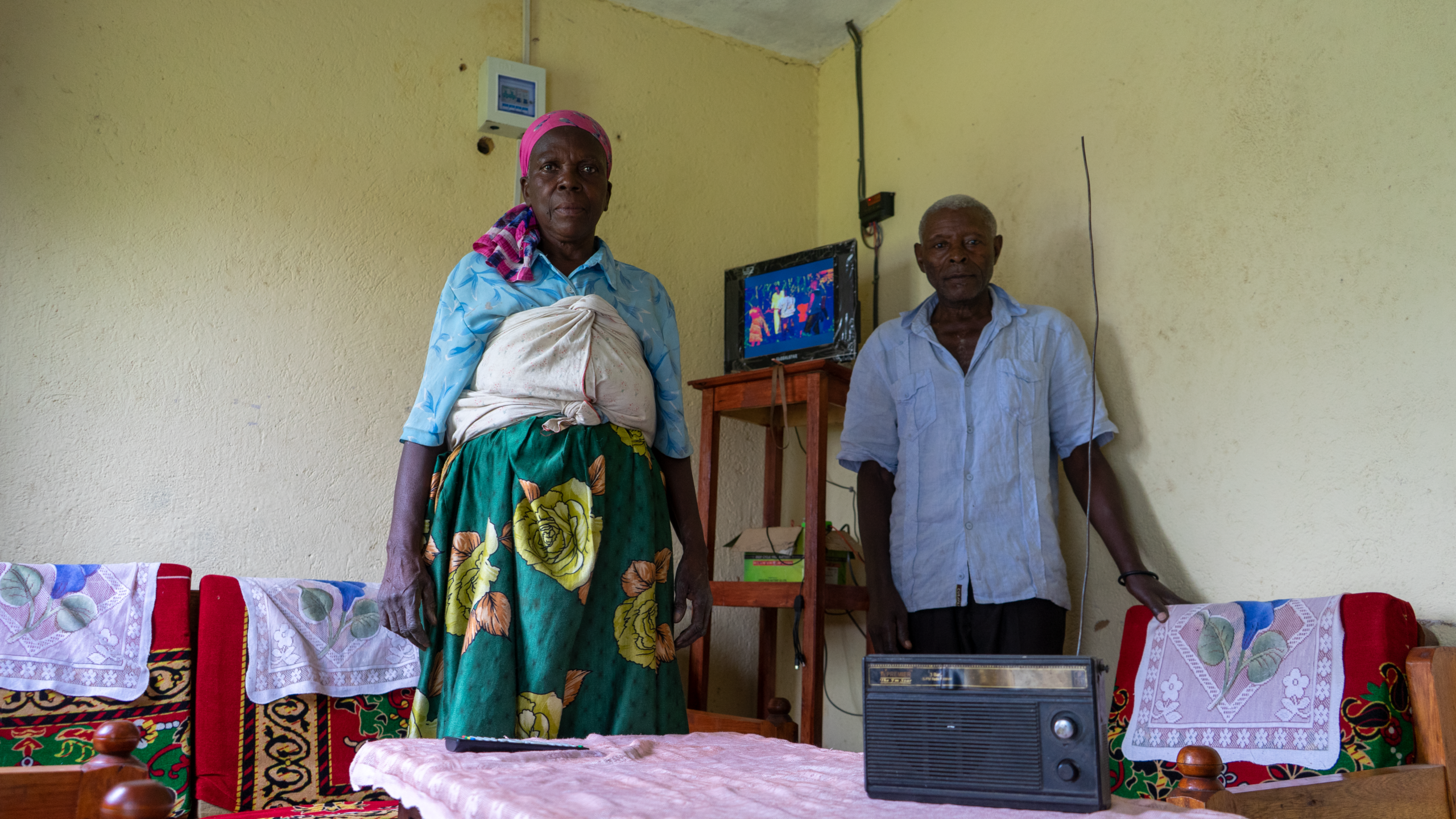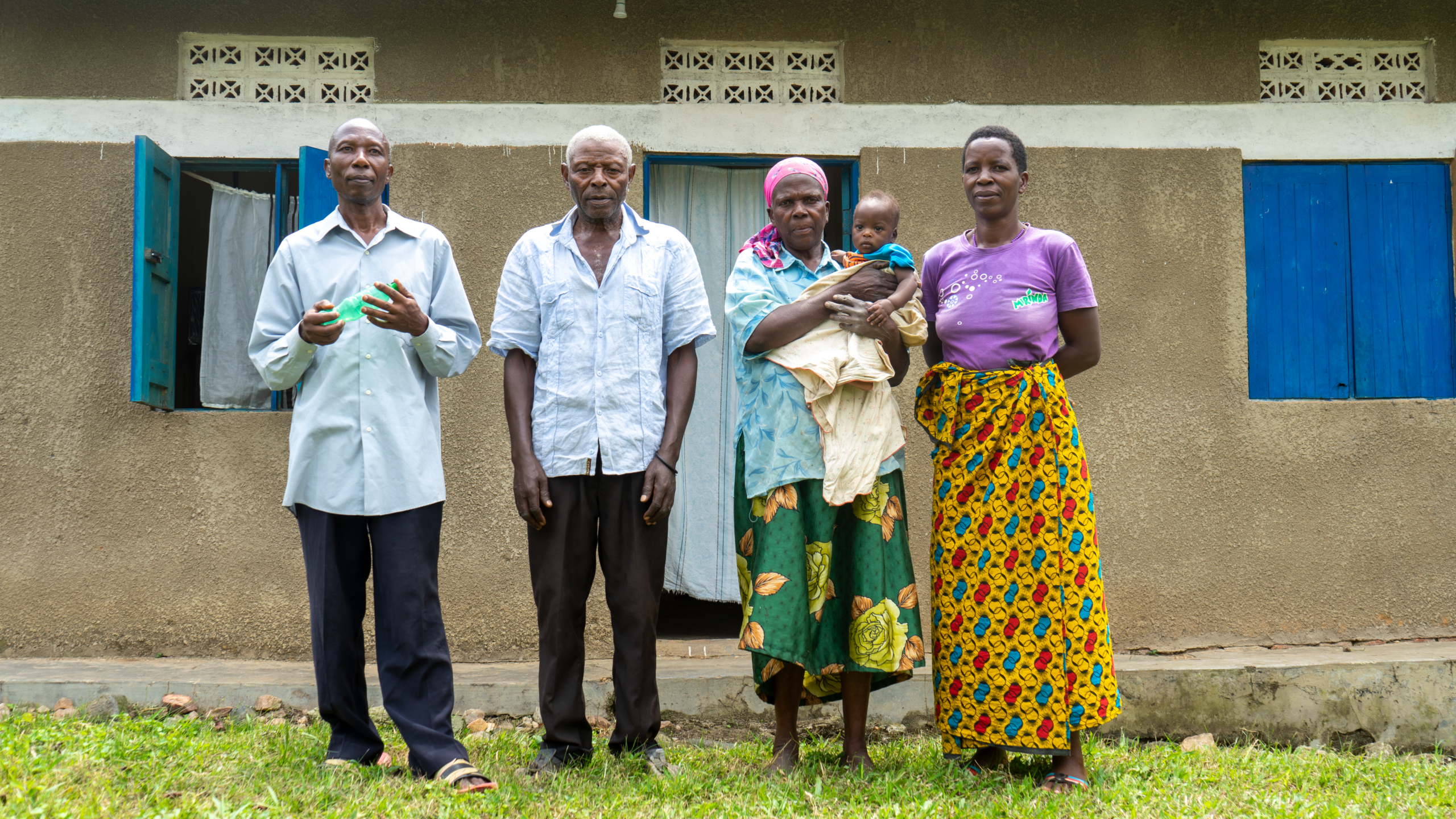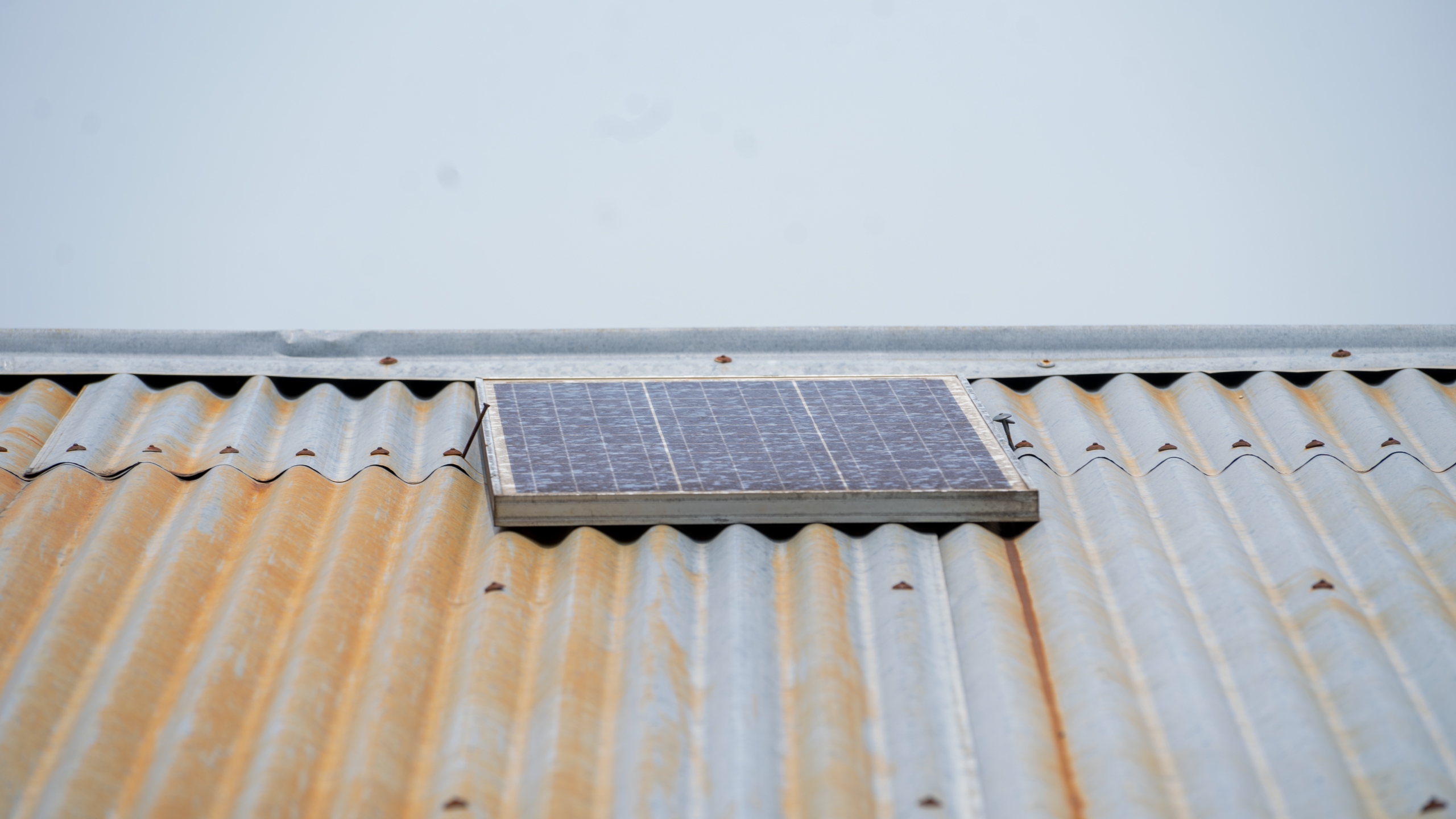Climate-Friendly Energy Solutions in Uganda’s Last Mile
Jackson and his family live in a small home in Bujerenje Village, Kanungu District in Western Uganda. As a rural village, Bujerenje faces numerous barriers to breaking the cycle of ultra-poverty, including challenges with infrastructure and accessible services. Far from the electric grid, households like Jackson’s spend critical income on lighting sources like candles and kerosene lamps. Their children often struggle with studies due to inadequate lighting in their home, and those accessing information with mobile phones often find themselves walking long distances and paying significant fees to charge them. Difficulty accessing reliable energy compounds existing challenges and impacts the community’s health, education, food security, gender equality, and more.

Jackson and his wife at their home in Bujerenje Village.
However, through Raising The Village’s “Secure, Improve, Sustain” program, Jackson and his community are now shining new light on community-driven development and investments for sustainable change.
As part of this program, households participated in financial literacy training and launched their savings group—Bujerenje RTV Village Saving and Loans Association (VSLA). “This financial training was an eye-opener, inspiring us to start this VSLA,” Siraj, VSLA Chairperson, shares.
As the group built resilience and learned new skills, community members—including women and youth who are often excluded from such activities—discussed how to reinvest VSLA funds. One key priority was securing access to sustainable energy sources, and the group decided to invest in solar panels, a clean energy solution that meets the unique needs of last-mile communities.

Some of the members and leaders of Bujerenje Village Savings Group – Kanungu District.
“Not only would that provide a cost-effective and reliable solution to meet our power needs, but it would also be a sustainable, climate-friendly solution,” Jackson describes.”
Importantly, these solar panels also empower the community to earn additional incomes. Fifty members have received solar panels, and are now using their solar panels as community charging stations that allow them to collect fees for their service. As the solar panel initiative continues to grow, the group members plan to use them to pump irrigation water during the dry season.
Now, the community is benefiting from secure access to energy while protecting the climate from further degradation. As Jackson states, “We are helping keep the environment safe for our children’s future.”

A solar panel sitting on the roof of Jackson’s house.


